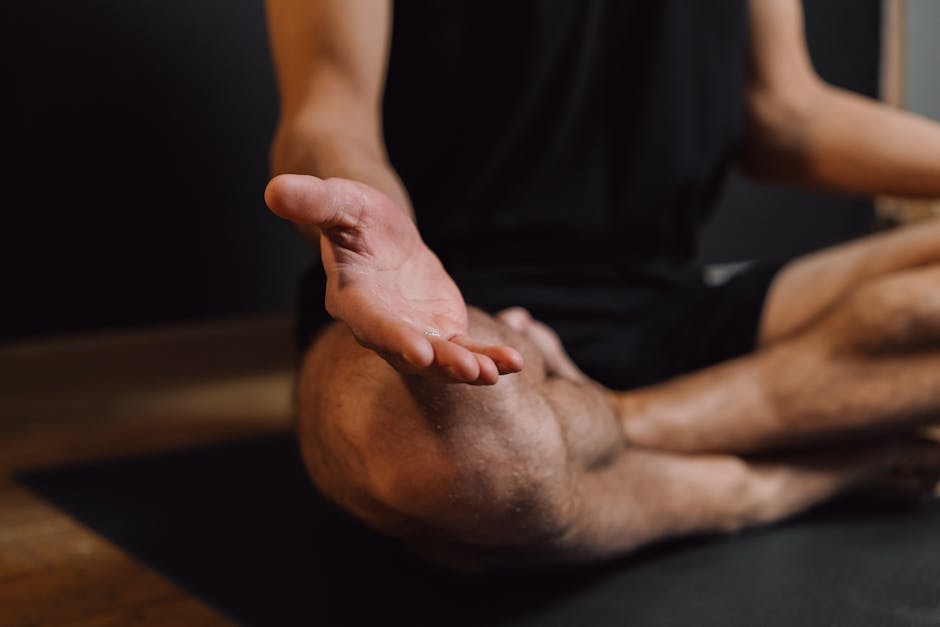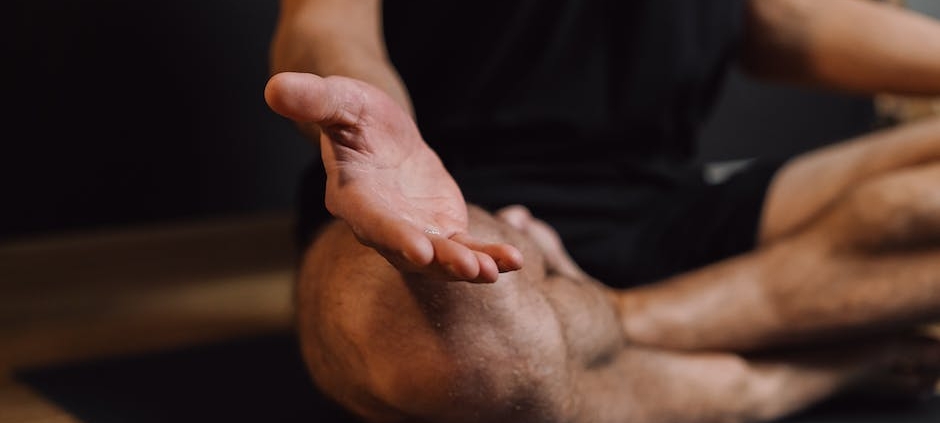Introduction to Holistic Recovery: Mind and Body Connection
Holistic recovery is all about treating the whole person, not just the symptoms of an ailment. Think of your health as a team, with your mind and body as key players. They’re in constant communication, each affecting the other’s performance. When tackling issues like addiction, stress, or chronic illness, it’s crucial to get both these players in top shape. This approach goes beyond popping pills to dull the pain or numb the mind. It’s about diving deep into what’s throwing your well-being off balance. We’re talking good nutrition, regular exercise, mental health checks, and practices like meditation or yoga. It’s about building a lifestyle that supports both mental clarity and physical stamina. By nurturing both mind and body, holistic recovery targets the root of the problem, setting the stage for long-term health and well-being.

Defining Holistic Recovery: What It Means for Wellness
Holistic recovery is about treating the whole person, not just the symptoms of a problem. This approach considers your mind, body, and spirit as interconnected parts that all need attention for true healing. It’s like a puzzle, where helping one part can support the others, but you need all the pieces for the full picture. A holistic recovery plan might include therapy for mental health, exercises for physical health, and meditation or mindfulness practices for spiritual well-being. The goal is to balance all aspects of life, seeking not just the absence of illness, but a state of overall wellness.
The Role of Mental Health in Holistic Recovery
Mental health isn’t just a buzzword; it’s central to holistic recovery. Imagine your mind and body as teammates. If one is off their game, the whole team struggles. Holistic recovery spotlights this connection. Depression or anxiety can throw your body out of whack. Stress knots your muscles and clouds your thought. On the flip side, when your body’s in pain or not feeling great, your mood and mental clarity take a hit. So a key play in this recovery game? Treating your mental health like you would a broken bone or a fever. It’s a real issue that demands real care. By tackling mental health, you’re setting the groundwork for your body to step up its healing game too.
Physical Health: A Pillar of Holistic Healing
When talking holistic recovery, we can’t just focus on the mind. The body’s role? Vital. Physical health isn’t something to overlook—it’s a foundational piece of the puzzle. Look at it this way: a strong body supports a strong mind. Eating nutritious food, getting into shape with exercise, and ensuring adequate rest are all key. And it’s not just about avoiding illness. Nope. Physical activity pumps up endorphins—those feel-good hormones. What’s more, proper nutrition fuels both brain and body for optimal functioning. Plus, sleep isn’t for the weak; it’s for the wise. Solid rest equates to sharper mental clarity. So, taking care of your body? Non-negotiable. It preps you to tackle mental hurdles in recovery, plain and simple.
Strategies for Addressing the Mind in Recovery
When you’re on the road to recovery, tackling the mind is as crucial as the physical aspect. It’s about rewiring thoughts and emotions, fostering resilience, and cultivating a positive outlook. To address the mind effectively, one effective strategy is engaging in regular therapy or counseling sessions. This opens the door to understanding patterns and working through emotional baggage. Additionally, practicing mindfulness and meditation can be game-changing. These techniques encourage presence in the moment, helping to manage stress and anxiety. Incorporating activities that stimulate mental growth, like reading or learning new skills, also empowers the mind. And of course, connecting with supportive communities and networks provides a sense of belonging and shared strength. So, mind strategies? We’re talking therapy, mindfulness, skill-building, and community. Get these in your toolbox, and you’re equipping yourself to tackle recovery head-on.
Nourishing the Body for Total Recovery
To truly heal, you can’t ignore your body—it’s the vessel that powers your day-to-day victories. When you’re on the road to recovery, think of food as fuel, the kind that gets your engine purring. A diet packed with nutrients does more than fill your stomach; it energizes the cells and can turn your mood around. So load up on those greens, lean proteins, and whole grains. Hydration’s key too. Keep the water flowing; your body and brain will thank you. Remember, a balanced, nutritious diet isn’t just a pillar of health, it’s the foundation for a clear mind and a resilient spirit.
Integrative Techniques: Combining Mind and Body Approaches
When we talk about healing, can’t just focus on the body or the mind alone. It’s crucial to tackle both for true, holistic recovery. Integrative techniques do exactly that. They blend physical treatments with mental and emotional strategies to form a powerful combo that tackles your wellbeing from every angle. Think of it like a dynamic duo—the mind and body working together to kick illness to the curb.
First up, let’s chat about the physical part. Practices like yoga and Tai Chi hook up calming movements with deep breathing. This cocktail cools down stress and beefs up physical strength and flexibility. Then there’s acupuncture, fam. This ancient trick uses tiny needles to hit specific body points to reduce pain and nudge the body toward healing.
Next, the mental hustle. Techniques like meditation and mindfulness put the reins on a galloping mind and offer a break from the mental marathon we’re often in. They train the brain to focus and chill, lowering anxiety and improving mood.
When you mash these mind and body strategies together, you’ve got a powerhouse of healing. The body loosens up, the mind clears, and you’re on your way to feeling like the champ you are. This ain’t just fluffy talk—studies show that tackling both mind and body can lead to better health outcomes. So, if you’re on a recovery path, consider going all-in with an integrative approach. Your mind and body will high-five you for it.
Success Stories: Real-Life Benefits of Holistic Recovery
People are winning battles against illness by embracing holistic recovery, and the tales are heartening. For instance, meet James, diagnosed with chronic anxiety who found little relief in conventional medicine. By integrating mindfulness meditation, regular yoga, and a nutrient-dense diet, he reported a striking reduction in panic attacks and a newfound sense of control. Sarah, once crippled by joint pain, turned to acupuncture and herbal supplements. Months later, she hikes trails she once viewed from her window. It’s clear, when you tackle health by considering every part of oneself, the results can be profound and life-changing. Those who commit to holistic health practices often speak of enhanced physical health, sharper mental clarity, and deeper emotional wellbeing.
Overcoming Challenges in Mind-Body Recovery Journeys
Holistic recovery is not a walk in the park. It’s an ongoing battle that tackles the mind and the body, each with its own set of hurdles. When you face mental challenges, such as anxiety or depression, they can physically drain you. On the flip side, a physical setback, like an injury, can take a toll on your mental health. It’s critical to understand that this is normal and part of the process.
In these tough periods, remember that persistence is your ally. Healing the mind can boost your physical recovery, just as strengthening the body can lift your spirits. It’s all about balance and not letting frustrations bog you down. Stick with the plan, seek support from those who’ve walked this path, and give yourself the time you need to heal. Overcoming each hurdle strengthens not only your body or mind but your resolve for a complete recovery.
Embracing Holistic Recovery: A Path to Sustainable Well-Being
Holistic recovery is about treating the whole person, not just the symptoms or the addiction itself. It considers mental, physical, social, and spiritual health, understanding that they’re all connected. To walk a path to sustainable well-being, you must look beyond quick fixes and focus on a balanced lifestyle. Embracing holistic recovery means engaging in activities that improve mental health, like therapy or meditation, alongside those that boost physical health, such as proper nutrition and exercise. It’s about making choices that foster strong relationships and finding purpose in life. Sustainable recovery is possible when the entire self is nurtured. This approach helps build resilience against relapse and leads to a happier, healthier life in the long run. It’s not just about getting better—it’s about staying well.



